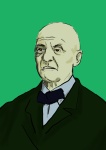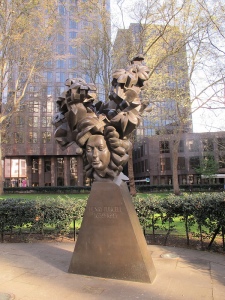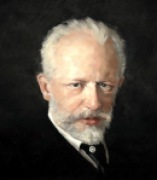 This was Phil Smith’s suggestion to the East of England Singers (EOES) when singing Bruckner’s Sanctus from his Mass No 2 in E minor on Saturday. The acoustic of St John’s Church, Carrington, helped the choir to achieve a soaring sound. Thank you to Phil for rehearsing and guest conducting EOES for this concert, and welcome back to the tenor section from now on.
This was Phil Smith’s suggestion to the East of England Singers (EOES) when singing Bruckner’s Sanctus from his Mass No 2 in E minor on Saturday. The acoustic of St John’s Church, Carrington, helped the choir to achieve a soaring sound. Thank you to Phil for rehearsing and guest conducting EOES for this concert, and welcome back to the tenor section from now on.
Freed from conducting, Angela joined the altos, she also sang a duet in the Stravinsky with her soprano daughter, Sarah. The New Classical Wind Ensemble was in fine form, and the audience expressed much appreciation of the programme. It was great to see familiar and new faces, thank you for supporting us and we hope you enjoyed the concert as much as we did.
Our next concert date is Saturday 5th December, St Giles Church, West Bridgford. The programme will include Bach’s glorious Magnificat in D with the Christmas interpolations, Vaughan Williams’ very English Fantasia on Christmas Carols and Torelli’s Concerto in forma di pastorale, per il Santo Natale. What better way to bring brightness to December days? Warming mulled wine or juice and mince pies will be served during the interval. We look forward to seeing you there. Click here for tickets.
Here are eight of the Ensemble playing Mozart’s Serenade in C minor, K388, conducted by Phil Smith.


 nd
nd  Purcell was the organist at Westminster Abbey at the time of the death of Queen Mary II in 1694. Although the Queen had requested that there be no state occasion upon her death, the outpouring of national grief led to a state funeral that cost, in the value of the time, £100,000. It took place on 5 March 1695. Purcell was responsible for the music. Scholarship now shows that although some of the music used during the service was by Purcell himself, much was by Morley and others. It is known that Purcell’s third version of Thou knowest, Lord, the secrets of our hearts, and his March and Canzona, were used during the service. His two other funeral sentences, which will also be sung during the concert, come from c1682, before Mary came to the throne. They were perhaps written for the funeral service of a friend. The third version of Thou knowest, Lord, has been used at many subsequent royal funerals, including that of Queen Elizabeth, the Queen Mother.
Purcell was the organist at Westminster Abbey at the time of the death of Queen Mary II in 1694. Although the Queen had requested that there be no state occasion upon her death, the outpouring of national grief led to a state funeral that cost, in the value of the time, £100,000. It took place on 5 March 1695. Purcell was responsible for the music. Scholarship now shows that although some of the music used during the service was by Purcell himself, much was by Morley and others. It is known that Purcell’s third version of Thou knowest, Lord, the secrets of our hearts, and his March and Canzona, were used during the service. His two other funeral sentences, which will also be sung during the concert, come from c1682, before Mary came to the throne. They were perhaps written for the funeral service of a friend. The third version of Thou knowest, Lord, has been used at many subsequent royal funerals, including that of Queen Elizabeth, the Queen Mother.
 violin and piano, six symphonies and other orchestral works. He wrote songs, instrumental music and opera, the best known of which is Eugene Onegin. He was a troubled man from a young age until his death. Whether he died from natural causes or suicide remains a point of conjecture. He wrote music of passion and deep emotion, but by no means all melancholic. Music, it’s good for the soul.
violin and piano, six symphonies and other orchestral works. He wrote songs, instrumental music and opera, the best known of which is Eugene Onegin. He was a troubled man from a young age until his death. Whether he died from natural causes or suicide remains a point of conjecture. He wrote music of passion and deep emotion, but by no means all melancholic. Music, it’s good for the soul.